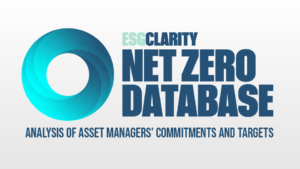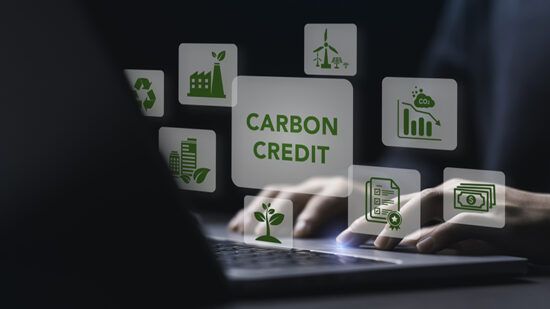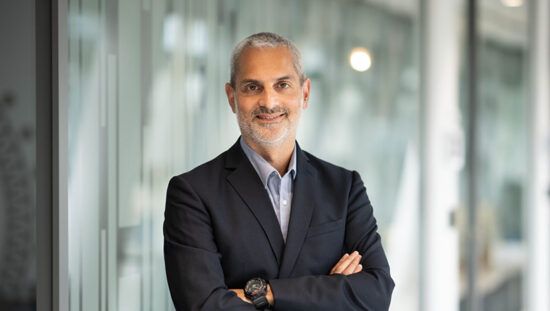In this Green Dream video interview, Will McIntosh-Whyte, fund manager of the Rathbone Greenbank multi-asset portfolios, and Rahab Paracha, sustainable multi-asset specialist, discuss ESG performance, style biases and greener buildings.
The pair said there may have been some performance chasing in 2021 leading to overvaluations, so they have taken some time to make sure clients understood that ESG portfolios, like all portfolios, are subject to periods of underperformance and ensure they are holding them for the right reasons – aligning investments with their values.
Meanwhile, McIntosh-Whyte also shared the multi-asset portfolios’ positioning last year amid tumultuous markets and Paracha highlights some of the companies they hold within the buildings sector.
Part 2 of this video will be available at a later date.
Watch the full video interview above and read the transcript below.
NK: Hello and welcome back to the Green Dream video series. Today, I’m joined in the studio by Will McIntosh-Whyte and Rahab Paracha. They are part of the Rathbone Greenbank multi-asset team. Thanks so much for coming in today.
We’ve had a bit more of a challenging time for markets and ESG as well, with the anti-ESG sentiment, especially in the US last year. How have you tackled that, firstly in portfolios? And then also with your conversations with clients?
WMW: So we launched these funds in early 2021, which was a very good year for markets. There’s a lot of liquidity around, ESG was very much in favour, and a lot of money going into these strategies.
I think really this led to a bit of a bubble, but certainly a bit of an overvaluation, particularly in the growth space and especially the sort of speculative growth space where actually we saw some pretty severe over-valuations. And for us, that was an area we specifically tried to avoid and make sure the businesses that we were buying were quality businesses with real business models and sensible balance sheets.
We also looked to have some growth in portfolios – some balance between growth and value stocks. Making sure that we balance out that style bias. We had an element of defensiveness to the portfolio. So we had lots of cash, and we kept the duration quite short. And we also bought some Nasdaq puts back in 2021 to help protect against that growth sell-off.
NK: OK, and how were your conversations with clients around that?
WMW: So for us, we’ve been very clear with clients from the start about being in the strategy for the right reasons and, through 2021, I think there was a lot of interest because sustainable investments had performed very well, maybe there’s some performance chasing. When talking to clients, we really want to be clear that they were in the portfolio for the right reasons. We were very clear that actually these strategies might not outperform, certainly not all the time, there are going to be periods of underperformance. So making sure they’re in for the right reasons and really that that is because they want to align their values with their investments.
NK: What are the main themes for 2023? What’s going on in the portfolio at the moment?
RP: As the portfolios aren’t thematic, we tend to think about structural trends rather than themes. As Will mentioned, we like to invest in quality, durable companies that have long-term structural tailwinds behind them. One interesting trend is the movement towards greener buildings. So many people may not know this, but buildings of the sector actually represent nearly 40% of global energy-related carbon dioxide emissions.
We are investing in companies that are trying to solve this big problem. For example, we invest in a company called Johnson Controls, and they’re a leader in small building solutions to improve energy efficiencies in buildings. We hold another company called Owens Corning, a provider of energy conserving insulation, and these types of solutions can actually make a real difference.
For example, if a company implements quite a simple building management system, then they can reduce their energy usage by an average 10%. Some other interesting sustainable areas that we have exposure to include agtech. So this is when companies can provide innovative technologies, such as satellite imaging and drones, to help farmers optimise their yields while also reducing their carbon emissions.
And then we also have exposure to health and wellbeing and in the areas of medtech and diagnostics. And then lastly, we have exposure to the circular economy, for example, through companies that specialise in sustainable packaging. In terms of 2023, we believe all these trends are very long term. And so we see them being entirely relevant and important going into 2023 and beyond.
But, of course, we always have eyes on the lookout for any new perspectives on sustainable areas that could lead to some interesting new investable opportunities for the year as well.
NK: Are there any challenges for the sustainable investment industry that you’ll keep an eye on this year?
RP: Finding and investing in companies that are truly sustainable, I would say, is a key challenge in the industry right now as the risk of company greenwashing has definitely increased. And what I mean by this is I think now, more than ever, companies are very hyper-aware that they have to be seen to be the most sustainable or seem to be always doing the right thing. So they’re really good at marketing themselves as perhaps being more aligned to sustainability than perhaps they really are. That’s why I think it’s really important that those of us in the sustainable investment industry do the proper in-depth research into companies before investing in them for a sustainable portfolio. We’re really lucky because we have Rathbone Greenbank, the ethical, sustainable and impact of Rathbones, doing the sustainability analysis for all the assets for our portfolios before they go into the fund, before we can invest.
And why this is great is because they have over 20 years’ experience conducting sustainability analysis, which I think is really necessary to do that kind of extensive due diligence that’s required to try and make sure the companies are aligned to sustainable development and our clients values as much as possible.
NK: It really is so important with the regulators cracking down on the greenwashers as well, there will be nowhere left for them to hide, hopefully.
Well, thank you both. Please join us for part two in a few weeks.








